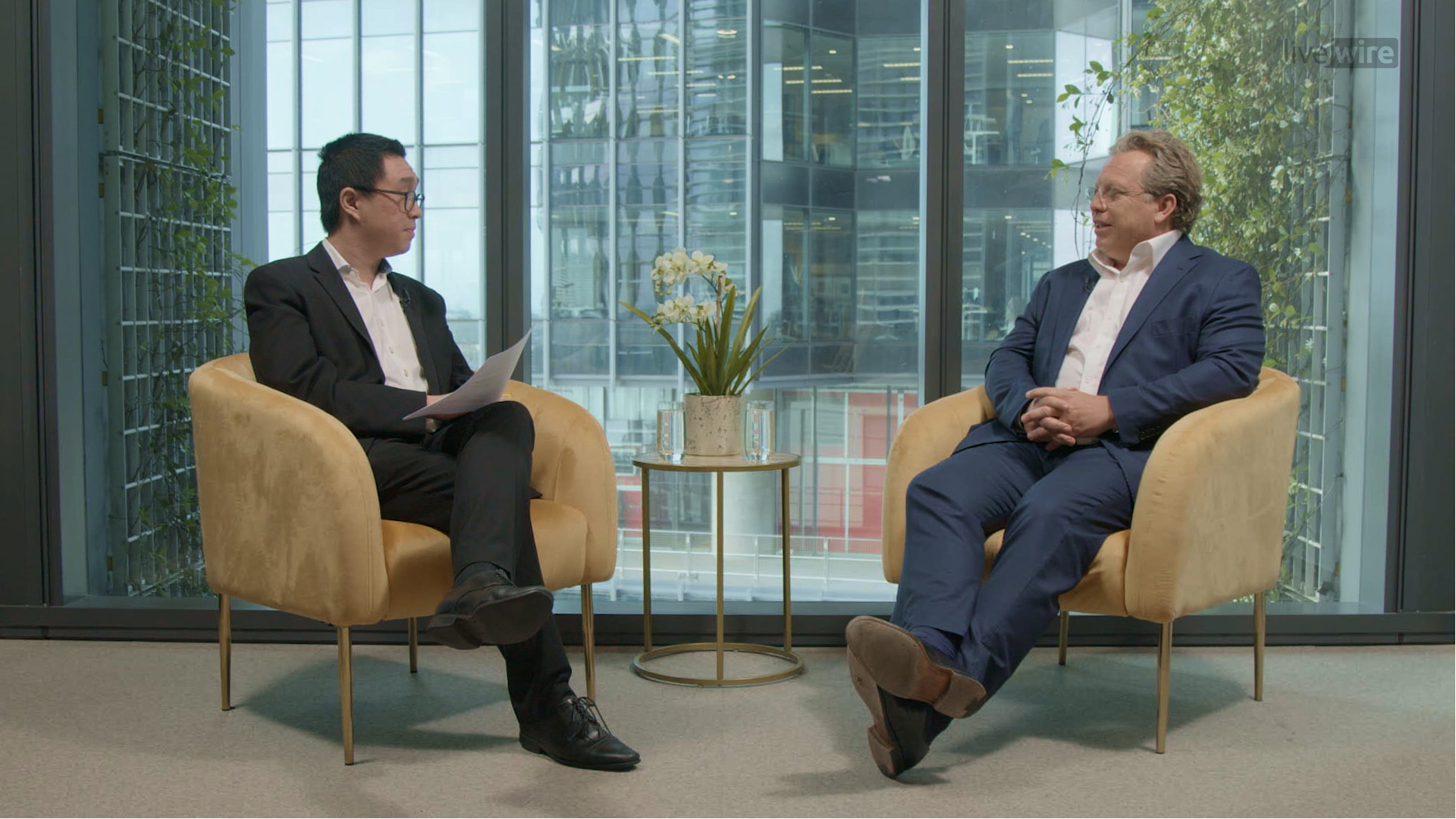Why this asset class is due for a boom (and the 3 tailwinds that will make it happen)
Note: This video was taped on Wednesday 2 October 2024.
On a recent trip to see clients and investors in Europe, Man GLG Asia Opportunities A Portfolio Manager Andrew Swan was faced with the same question again and again: Why should they put their money into an asset class that has been so riddled with underperformance?
"I think it's hard to get any interest in the asset class ... Interest in the asset class I would say is at an all-time low," Swan admits.
To cite but one data point, outflows from the region's equity markets in 2022 were the most severe since 2008.
Of course, the reasons for this are well-known even if all economies in that region tend to be tarred with the same brush.
But Swan thinks that we may finally be coming to an inflexion point - and not just because the beginning of 2024 marked the largest inflows into Asian equities in seven years.
He and his team have identified three primary reasons for the upturn: interest rate cuts (and the liquidity injection that may come with them), the knock-on positive effects of the AI trade, and a structural change in Chinese economic policy.
But it's not enough to talk about a looming sentiment change if you can't turn this thesis into investable ideas. So, in this episode of The Pitch, we're asking Swan to put his money where his mouth is by getting him to name three themes or assets that he thinks bargain-hunting investors should be eyeing.

EDITED TRANSCRIPT
LW: How does this current environment compare to other cycles you've invested through?
Swan: I think the short-term cycles tend to be driven by monitoring fiscal policy, and we're seeing changes in recent times. We're seeing some pretty significant changes in the largest economy (China), which are favourable, and the equity markets are responding to that. But these cycles last for short periods, maybe a couple of years or longer. But the long-term cycles are more like 10-year cycles.
I think we're on the verge of potentially one of those occurring, and the last 10 years in Asia have been quite difficult. It's been an asset class that, to your introduction, has promised a lot and underdelivered corporate profit growth is been very mediocre if virtually no profit growth in the region now for 10 years. And you compare that with developed markets which have seen profit growth, it's no wonder that the rest of the world has outperformed Asia. But the setup we're seeing right now is interesting because I do think we're on the verge of inflexion in profit growth, both short-term and long-term, which will be very favourable for these markets.
LW: What is the question you are most being asked by investors today?
Swan: It's been an interesting few months. I have travelled, not just to Europe but elsewhere around the world, and the feedback's been very consistent. It is a reflection of a market that's done poorly in many ways. I think it's hard to get any interest in the asset class. I think people see the problems in China.
We've heard the word "uninvestable". I never say that, but that's certainly the feedback we're getting. And I think the immediate opportunity that people are seeing in front of their faces was going on in other markets. And so the interest in the asset class I would say is at an all-time low.
LW: What makes you think there is going to be an upturn this time?
Swan: At the heart of what drives markets, it's really important to remember is corporate profit growth. Now, there are lots of things that people cite. There are lots of things you might read in the newspapers about why the region's doing poorly or not, but if it doesn't impact corporate profit growth, ignore it.
So why do I think now corporate profit growth is going to improve in the region? Well, there's really three key points that I'd like to highlight here.
1. Where we are in the artificial intelligence cycle. Asia has benefited in a narrow sense. Some companies are world leaders in semiconductors in the region, and they've benefited from this first phase of growth. Artificial intelligence, particularly around large language models - ChatGPT - these are companies selling semiconductors into data centres pretty much. But what we think is that 2025 will be a year where the innovation that comes with the step change in technology.
In this case, artificial intelligence moves from upstream companies like semiconductors and the cloud and data centres downstream into devices, leading you and me to buy a new phone. I don't remember the last time I bought a phone or I don't remember any change in functionality for my phone recently. But I do think we're on the verge of significant change that will entice you to go and buy another device. So that's number one and Asia has a lot of companies in that space.
2. Where we are in the global monetary cycle. Asia has not had an inflation problem, which is unusual. Normally, [inflation in Asia is] running at whatever the world is facing plus 50%. For the last three or four years, we've been low beta on global problems. We haven't had inflation and we haven't had growth. However, the challenge in Asia is that our central banks tend to import the monetary policy of large economies. So it's a very unusual setup right now where we don't have inflation, we don't have high growth, but we have monetary policy that reflects most central banks' want for stable currencies.
We have just inflected in US monetary policy. It's taken a long time longer than I think most people thought, but that is putting the power back in the hands of central banks in the region at a time when there isn't any inflation. And in some economies, they're doing okay. So we're giving a big boost to these economies from a monetary policy point of view.
3. Probably most important, is that in China, monetary policy is shifting. We're seeing a big boost in fiscal policy coming through as well. But I also think we're on the verge of structural change and this is about long cycles, not short cycles. And I do think policy is going to shift to be more supportive of the demand side of the economy, particularly through consumption rather than just the supply and investment side of the economy, which is what we've seen in recent times.
LW: Tell us about three assets you are eyeing with these themes in mind.
Number two, I would put some of these smaller economies like Indonesia and the Philippines as big beneficiaries of where we are in the global monetary cycle. Again, economies that are doing pretty well don't have inflation, but they're running tight monetary policy and that has just changed in the last short period. The outlook for profit growth in these regions, and smaller economies is very exciting over the coming years.
And then thirdly, I really think this move in artificial intelligence from upstream to downstream creates very interesting opportunities at the stock level. Asia has companies that do components in computers, in phones, and all sorts of things. They're also world leaders, not companies you may have heard of, but you're probably using their services.
I also think these companies are on the verge of finally getting a product refresh and new growth after a period where ultimately what they do becomes commoditised. And when products get commoditised, profitability comes under pressure. So you've got a lot of companies in this space that are suffering at the moment, but on the verge of, I think pretty significant growth.

4 topics
1 fund mentioned
1 contributor mentioned


